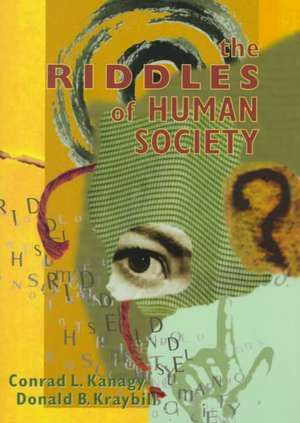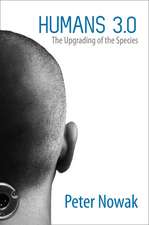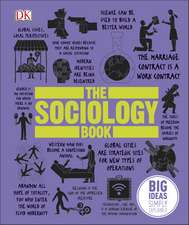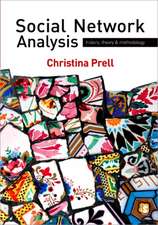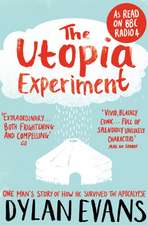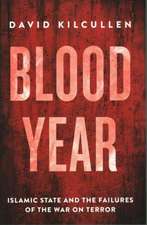The Riddles of Human Society
Autor Conrad L. Kanagy, Donald B. Kraybillen Limba Engleză Paperback – mar 1999
Preț: 927.18 lei
Preț vechi: 1130.71 lei
-18% Nou
Puncte Express: 1391
Preț estimativ în valută:
177.42€ • 185.62$ • 147.38£
177.42€ • 185.62$ • 147.38£
Carte tipărită la comandă
Livrare economică 02-16 aprilie
Preluare comenzi: 021 569.72.76
Specificații
ISBN-13: 9780761985624
ISBN-10: 076198562X
Pagini: 400
Dimensiuni: 165 x 235 x 20 mm
Greutate: 0.54 kg
Ediția:1
Editura: SAGE Publications
Colecția Sage Publications, Inc
Locul publicării:Thousand Oaks, United States
ISBN-10: 076198562X
Pagini: 400
Dimensiuni: 165 x 235 x 20 mm
Greutate: 0.54 kg
Ediția:1
Editura: SAGE Publications
Colecția Sage Publications, Inc
Locul publicării:Thousand Oaks, United States
Cuprins
Introduction
PART ONE: INTRODUCTION TO SOCIAL RIDDLES
The Exploration of Social Riddles
PART TWO: SOCIOLOGICAL THINKING
The Perspectives of Sociology
The Concepts of Sociology
The Methods of Sociology
PART THREE: FOUNDATIONAL CONCEPTS IN SOCIOLOGY
Culture
The Software of Social Life
Structure
The Architecture of Social Life
Ritual
The Drama of Social Life
PART FOUR: CASE STUDIES OF SOCIAL RIDDLES
Micro Riddles
Macro Riddles
PART FIVE: THE GRAND RIDDLE
The Riddle of Human Freedom
A Guide for Exploring Social Riddles
Guidelines for a Socioautobiography
Socioautobiography Samples
PART ONE: INTRODUCTION TO SOCIAL RIDDLES
The Exploration of Social Riddles
PART TWO: SOCIOLOGICAL THINKING
The Perspectives of Sociology
The Concepts of Sociology
The Methods of Sociology
PART THREE: FOUNDATIONAL CONCEPTS IN SOCIOLOGY
Culture
The Software of Social Life
Structure
The Architecture of Social Life
Ritual
The Drama of Social Life
PART FOUR: CASE STUDIES OF SOCIAL RIDDLES
Micro Riddles
Macro Riddles
PART FIVE: THE GRAND RIDDLE
The Riddle of Human Freedom
A Guide for Exploring Social Riddles
Guidelines for a Socioautobiography
Socioautobiography Samples
Notă biografică
Conrad L. Kanagy received his Ph.D. from Penn State and is now an Assistant Professor of Sociology at Elizabethtown College, Elizabethtown, PA. His research interests include race and ethnicity, religion, and the environment, and he teaches Discovering Society, Sociology of Religion, Population and Global Issues, Research Methods and Statistics.
Descriere
This textbook uses the `riddles' metaphor to introduce social analysis and to communicate the critical, questioning aspects of sociology which is at the heart of its tradition. The book teaches the student how to be aware of the social `riddles' around them and how to solve them using sociological analysis.
